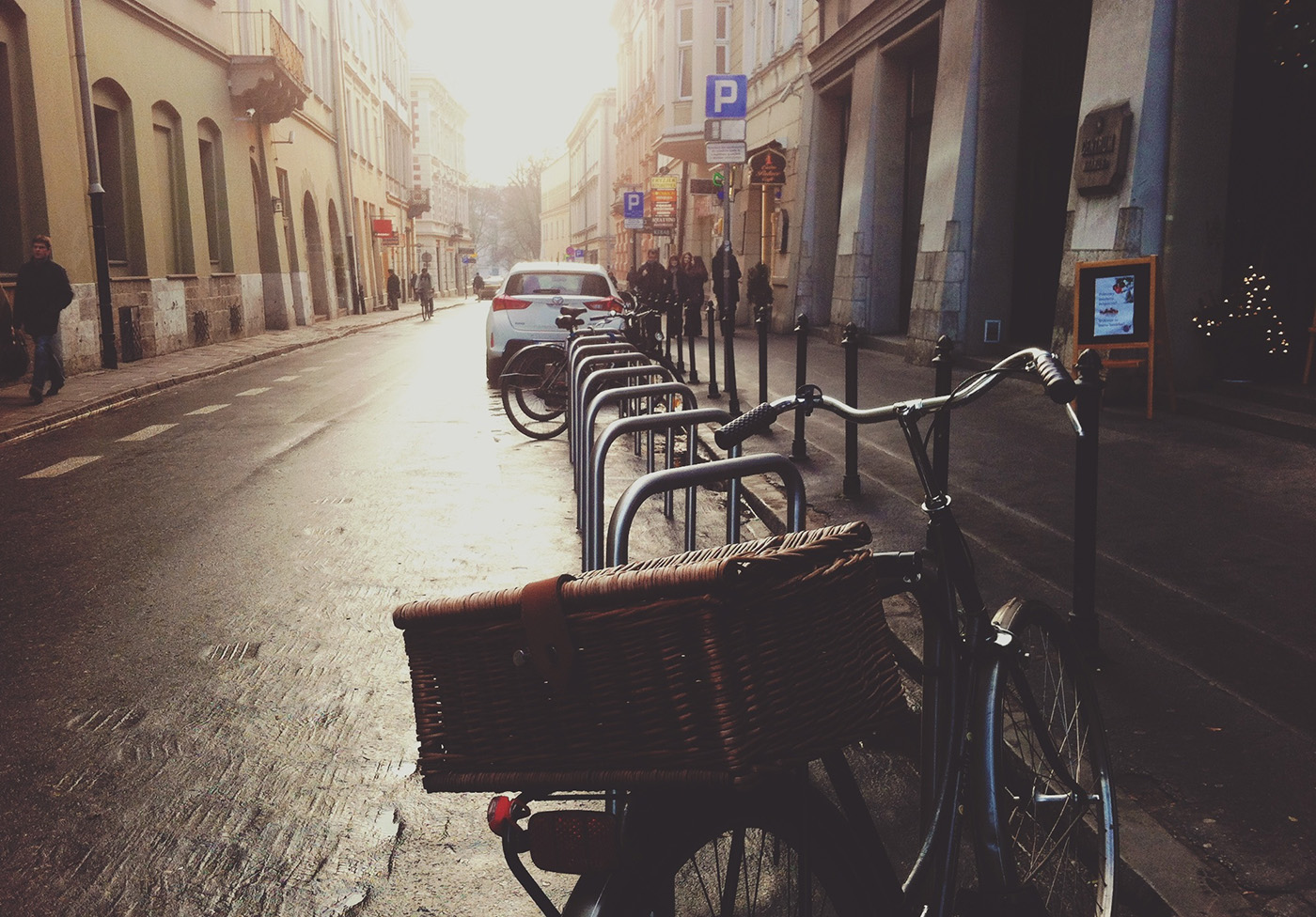Throwing the Baby out with the Bathwater: Actions of City Officials in Krakow
The train to Krakow arrived after dark. The walk through Planty to the hotel on Dominikańska Street feels a bit like playing in a dark room. Not much is visible; investing in efficient and appropriate lighting for the Old Town, especially the market square, is clearly not (or not visibly) a priority.
Fortunately, I knew the way, so reaching the given address wasn't too difficult. But here I was very surprised. I walked along the entire facade of the building but couldn't find the hotel. I must have mixed up the addresses, I check, no, everything matches.
I approach the only door... and yes, now I see it!
Above the entrance is a tiny unlit sign, I open the door,
yes, I know I'm in the hotel.
Right after crossing the threshold, a smiling porter greets me, everything is fine. However, the matter didn't leave me in peace, I wanted to know why such a pleasant hotel, tastefully arranged in a historic tenement house in the center of old Krakow, doesn't have proper signage.
A somewhat embarrassed receptionist informs me that unfortunately, the city's graphic designer did not allow for any other signage.
It's all clear now... In Krakow, indeed, a lot has been done in recent years when it comes to organizing the main streets, most of the tacky small ads have disappeared, and those that remain are largely matched in character to the surroundings.
Great respect for the work that has been done...
However, I get the impression that along the way, a rather important matter has been lost,
because organizing the city is one thing, and fighting against advertising is another. Well, maybe not entirely
against every ad, because for example, entering the Cloth Hall from the Wawel side, we see beautifully restored old advertisements on the facade.
So, how am I supposed to understand this? Was advertising good in the past, but bad now?
Is it possible to hang an ad for, say, a bookstore next to these ads on the Cloth Hall now?
Well, no, firstly because bookstores are disappearing from Krakow's Old Town, as it's more profitable to sell plastic souvenirs made in China, and secondly because someone is forgetting about the function of advertising and the function of the city.
So, a brief reminder.
Krakow was founded because trade routes once intersected here.
And it was trade that was the engine of the city's development. No city would have emerged if it weren't for trade.
The wealth of a city was always determined by its market, its size; usually, the larger it was, the richer the city... The most important role of the town hall was to create favorable conditions for trade. And that's exactly why Krakow could develop so wonderfully. Buildings and places of unforgettable character were created and have remained to our times, thousands of people come, visit, leave money. There are also quite a few people who know how to collect it. The role of the town hall is still the same - it must create favorable conditions for economic activity; if it doesn't do this - it's an unnecessary cost.
And where does advertising fit into all this? Many probably remember the slogan "advertising is the lever of trade". That's exactly right. Without advertising, trade would have no chance to develop. Advertising has been in Krakow from the beginning, only the forms have changed. By the way, the Wawel Dragon didn't fly in from the moon, it's an element of a well-thought-out marketing strategy 😉
Let's do everything so that a guest who arrives doesn't have to wander through dark alleys and search the internet for how to get to the nearest restaurant, shop, or hotel. Let's make it easier for them, a satisfied customer will return, and everyone will benefit.
There's one more problem. Standing in Krakow's market square and looking around, I get the impression that some are more equal than others, because how else to explain the fact that one company can have a large neon sign and another only a small plaque? Are there any exceptions when the rules for placing advertisements in the city don't apply? Many an official would probably say no. But that wouldn't be true. Soon elections will come, and then it will turn out that all rules are so flexible that anything can be done. The mess will be terrible. Until recently, I thought this was specific to our country. So I was a bit surprised when I was in Munich a few days ago, it's very similar there.
One might ask, why does this happen? The answer is simple:
because every political party knows that a large portion of votes is collected on the street.
And how to do it most cheaply and efficiently? Of course, through outdoor advertising.
It's a pity that these actions are focused on quantity, not quality.
Let's sum up. Elections are coming, so may the newly elected authorities remember
that fighting against advertising without a plan, sense, chaotically or sometimes foolishly
is not the same as organizing the city and caring for the aesthetics of public space.
Often, fighting against advertising is like sawing off the branch you're sitting on.
The money for officials' salaries comes from inflows to the city treasury,
inflows to the treasury depend on the profit generated by entrepreneurs,
and their profits also depend on advertising expenditures.

